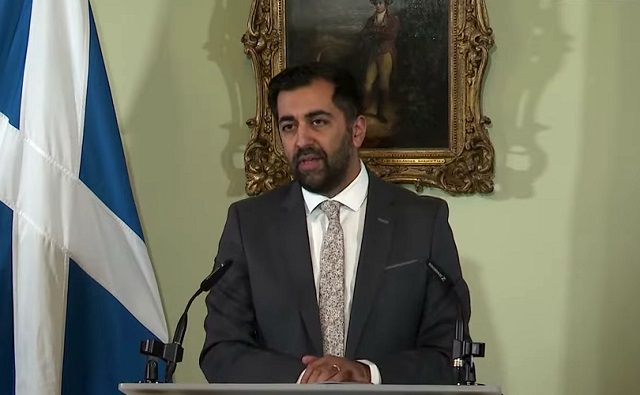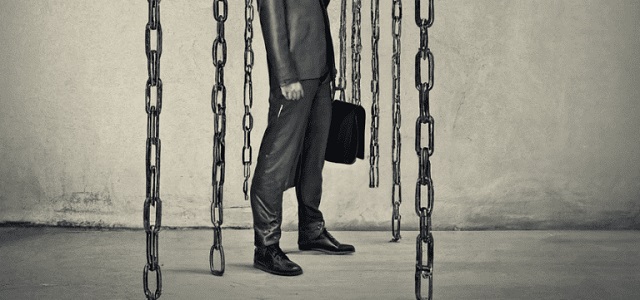Justice
Quebec’s highest court upholds law banning public servants from wearing religious symbols
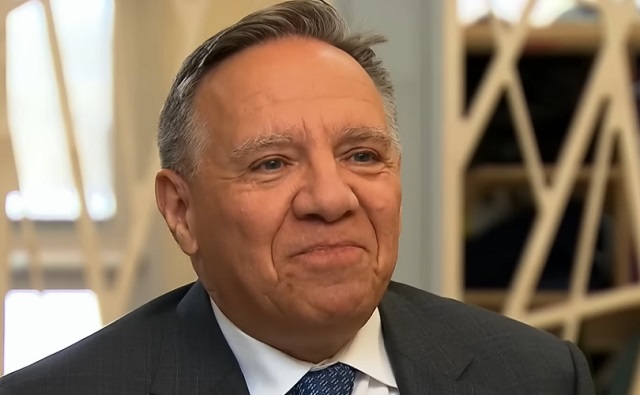
Quebec Premier François Legault
From LifeSiteNews
The new ruling overrides the Quebec Superior Court’s 2021 ruling which exempted the Montreal English school board from the province’s secularism law which prohibits public servants from wearing cross or other religious symbols.
Quebec’s highest court has upheld the province’s secularism law which bans civil servants from wearing religious symbols while at work.
On February 29, the Quebec Court of Appeals ruled that that the province’s secularism law, Bill 21, is constitutional and overturned a previous decision which exempted English schools from the law.
“The Act does not offend the unwritten principles or the architecture of the Canadian Constitution, nor does it offend any pre-Confederation statute or principle having constitutional status,” Appeal Court justices, Manon Savard, Yves-Marie Morrissette et Marie-France Bich wrote in their decision.
Bill 21, passed in 2019, bans all public servants, including public school teachers, police officers, government lawyers, and wildlife officials, from wearing any religious symbols while at work.
However, citing its commitment to “diversity, acceptance, tolerance and respect for individual rights and religious freedoms,” the Montreal English School Board indicated that it would not comply with the new law.
While the Quebec Superior Court exempted English schools from the secularism law in April 2021, the new 290-page ruling overrides the lower court’s decision.
The Superior Court decision was challenged in November 2022 by various civil liberties groups in addition to the Quebec government, which argued it created an unfair distinction between English and French schools.
The new decision relies on the province’s use of the notwithstanding clause, which allows the province to override most challenges to the legislation.
The notwithstanding clause, embedded in section 33 of the Canadian Charter of Rights and Freedoms, allows provinces to temporarily override sections of the Charter of Rights and Freedoms to protect new laws from being scrapped by the courts.
“The court has confirmed Quebec’s right to make its own decisions,” Premier François Legault told reporters in Montreal Thursday. “Secularism is a collective choice that is part of our history, in continuity with the Quiet Revolution. Secularism is a principle that unites us as a nation in Quebec.”
Legault confirmed that the province will continue using notwithstanding clause for “as long as it is necessary for Canada to recognize the societal choice of the Quebec nation.”
He added that the law is “non-negotiable” as the province recently tabled legislation to renew the application of the clause to Bill 21 for another five years.
While the decision was celebrated by the Quebec premier, the Canadian Civil Liberties Association (CCLA) called the ruling a “painful setback.”
“This is a heart-wrenching day and highlights the urgent need for people across Quebec who have stood up for the values of equality, justice and freedom to continue to raise their voices,” CCLA Executive Director and General Counsel Noa Mendelsohn Aviv said in a press release.
“These values are the ones that fuel our legal challenge and that lie at the heart of our collective struggle against Bill 21,” Aviv declared.
Similarly, Quebec Life Coalition President Georges Buscemi told LifeSiteNews, “This decision is completely consistent with the recent historical trend in Quebec, which is one of rejecting its Catholic heritage in favor of a liberal ‘enlightened’ worldview, which considers religion to be a purely private matter.”
“This decision confirms the ‘legality’ of Quebec’s secularism law, which purports to make the state ‘neutral’ with respect to religions,” he continued. “Whatever the intentions of this law, its effect is to extirpate all signs of religion from the public square, from Knights of Columbus meetings in community centers to prayer in daycares. So called state-neutrality is quickly becoming state atheism in practice.”
COVID-19
Elon Musk-backed doctor critical of COVID response vows appeal after court sides with medical board
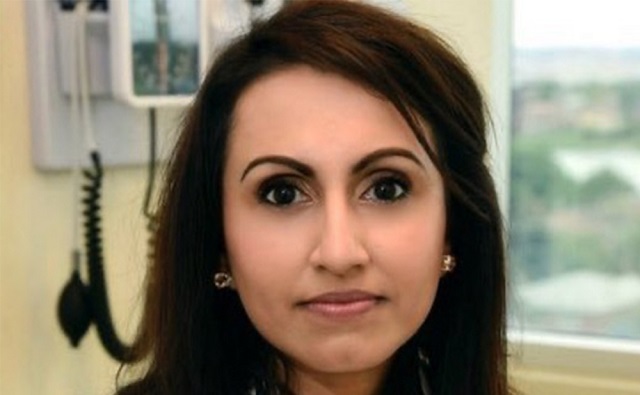
From LifeSiteNews
One of Gill’s “controversial” posts read, “If you have not yet figured out that we don’t need a vaccine, you are not paying attention. ”
A Canadian physician who challenged her medical regulator after it placed “cautions” against her for speaking out against draconian COVID mandates on social media has lost a court battle, but with the help of her Elon Musk-backed legal team she has vowed to appeal the ruling.
The case concerns Dr. Kulvinder Kaur Gill, an Ontario pediatrician who has been embroiled in a legal battle with the College of Physicians and Surgeons of Ontario (CPSO) for her anti-COVID views posted on X (formerly Twitter) in 2020. As reported by LifeSiteNews, her case received the support of billionaire Tesla and X owner Elon Musk, who pledged in March to back her financially.
One of Gill’s “controversial” posts read, “If you have not yet figured out that we don’t need a vaccine, you are not paying attention. #FactsNotFear.”
The Divisional Court decision against Gill dated May 7, 2024, concluded, “When the College chose to draw the line at those tweets which it found contained misinformation, it did so in a way which reasonably balanced Dr. Gill’s free speech rights with her professional responsibilities.”
“In other words, its response was proportionate,” noted the ruling.
Gill’s lawyer, Lisa Bildy with Libertas Law, stated in a press release sent to LifeSiteNews that the “Court declined to quash the ‘cautions’ orders, finding that the ‘screening committee’ of the CPSO was sufficiently alert to the Charter infringement of Dr. Gill’s speech, such that its decisions were within the range of reasonable outcomes.”
“Dr. Gill had argued, in two factums,” noted Bildy, which can be found here and here , and filed in the companion court applications, that “her statements were not ‘verifiably false.’”
Bildy expressed that Gill had provided the College with “ample evidence in 2020 to support her position against lockdowns,” but was sanctioned “because they went against the College’s guidance that doctors should not express opinions contradicting government or its public health edicts.”
Gill’s court challenge against the CPSO began last month, with Bildy writing at the time that the College’s “decisions were neither reasonable nor justified and they failed to engage with the central issues for which Dr. Gill was being cautioned.”
She argued that Gill had a “reasonable scientific basis” for her posts, noting that the previous decision made against Gill targeted her for opposing the mainstream COVID narrative.
“The decision starts with the premise that doctors have to comply,” said Bildy, warning that censoring doctors would have a “chilling effect” on free speech.
Bildy noted that in its ruling, the court “disagreed” with Gill’s challenge, “stating that this invited a reweighing of the evidence.”
The court also ordered that Gill pay the CPSO $6,000 in legal costs.
Gill is a specialist practicing in the Greater Toronto area, and has extensive experience and training in “pediatrics, and allergy and clinical immunology, including scientific research in microbiology, virology and vaccinology.”
Last September, disciplinary proceedings against her were withdrawn by the CPSO. However, last year, Gill was ordered to pay $1 million in legal costs after her libel suit was struck down.
The CPSO began disciplinary investigations against Gill in August 2020.
Gill to appeal recent court ruling with support from Musk’s X
The court’s ruling asserted that the CPSO panel members consisted of “three physicians with highly relevant expertise that they were able to bring to bear when assessing the scientific and medical information before them, expertise that this court does not have.”
Bildy noted that in fact, the CPSO panel consisted of “three surgeons and a general member of the public who had deferred to the ‘expertise’ of government’s public health arm.”
The court ruling also dismissed Gill’s arguments that publishing the “cautions on her public register and disseminating a notice about the cautions to hospitals and regulators across the continent was punitive and had a chilling effect on one side of a debate.”
“The Court opted to align with other Divisional Court decisions in stating that the cautions were not a finding of professional misconduct but were merely a remedial measure. This is despite the fact that cautions have, only in recent years, become a public rebuke rather than a private ‘correction’ of a professional by their peers. This significant change has not yet been grappled with by the Ontario Court of Appeal,” noted Bildy.
Bildy said that Gill intends to “seek leave to appeal to the Ontario Court of Appeal with the support of X Corp., since her posts were made on the X platform which supports free expression and dialogue, even on contentious issues and particularly on matters of scientific and medical importance.”
Gill noted on X Tuesday that her “notice of motion for leave to appeal will be filed” next week “to begin process.”
She also thanked Musk and X for supporting her legal cause.
Gill had said that she had “suddenly” found herself going “against the narrative,” and was then “seen as a black sheep and as someone who should be shunned.”
Many Canadian doctors who spoke out against COVID mandates and the experimental mRNA injections have been censured by their medical boards.
Earlier this month, Elon Musk’s X announced that it will fund the legal battle for another Canadian doctor critical of COVID lockdowns, Dr. Matthew Strauss, an Ontario critical care physician and professor, against his former employer Queen’s University after it forced him to resign.
In an interview with LifeSiteNews at its annual general meeting in July 2023 near Toronto, canceled doctors Mary O’Connor, Mark Trozzi, Chris Shoemaker, and Byram Bridle were asked to state their messages to the medical community regarding how they have had to fight censure because they have opinions contrary to the COVID mainstream narrative.
COVID-19
Trudeau government only sought legal advice after Emergencies Act was invoked, records indicate
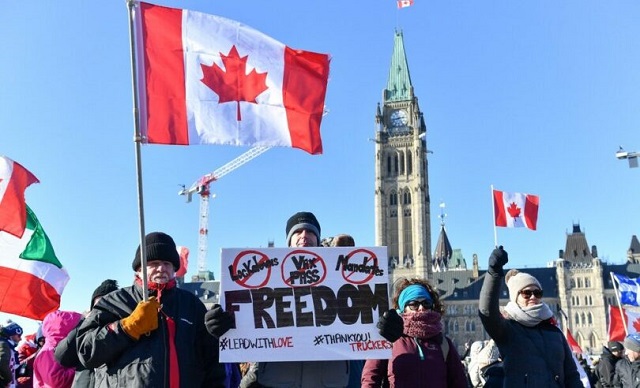
Canada’s Freedom Convoy in Ottawa Minas Panagiotakis/Getty Images
From LifeSiteNews
The two-page Memorandum For The Attorney General was dated February 15, 2022, and was written by the deputy director of prosecutions. The date of the memorandum is significant, as it comes after Trudeau had invoked the EA on February 14.
A Conservative MP’s request for information has revealed that the cabinet of Prime Minister Justin Trudeau waited until after it had invoked the Emergencies Act (EA), which was done to take down the peaceful Freedom Convoy, to get legal advice from Canada’s Attorney General on whether its use was lawful.
As noted in a recent Blacklocks’s Reporter article, Access To Information records obtained by Conservative MP Arnold Viersen from the office of the Attorney General confirm what many MPs have been suspicious of for years, that Trudeau’s use of the EA was not really warranted.
“I filed an Access To Information request for the memorandum on the Emergencies Act sent to the Attorney General from the Public Prosecution Service,” MP Viersen said in a statement to the media.
“What did they advise the Attorney General? We will never know because Justin Trudeau censored it.”
The documents, despite being censored, do reveal that the two-page Memorandum For The Attorney General was dated February 15, 2022, and was written by the deputy director of prosecutions. The date of the memorandum is significant, as it comes after Trudeau had invoked the EA on February 14.
Trudeau’s Attorney General Arif Virani, during testimony on February 28, said that there was a legal opinion offered regarding whether the use of the EA would be justified, but that its contents had to remain confidential.
This claim of secret legal advice has never been substantiated.
In early 2022, the Freedom Convoy saw thousands of Canadians from coast to coast come to Ottawa to demand an end to COVID mandates in all forms. Despite the peaceful nature of the protest, Trudeau’s government enacted the EA on February 14, 2022. Trudeau revoked the EA on February 23.
Earlier this year, Canada’s Federal Court announced that the use of the EA by the Trudeau government was a direct violation of the nation’s Charter of Rights and Freedoms, and thus was “not justified.”
Of note is that the judge who ruled Trudeau’s government’s use of the EA was “not justified” was Federal Court Justice Richard Mosley, a Liberal-appointed and well-respected judge with decades of experience.
The Trudeau government has since appealed the court’s decision.
I do not ‘believe for a second’ the ‘threshold’ was met to invoke EA
Conservative MP Glen Motz told a February 28 hearing of the Special Joint Committee on the Declaration of Emergency that he did not believe for a “second” that the “broader interpretation even existed,” in terms of the legality of the EA’s use.
“I still believe more strongly today than I did in 2022 that the circumstances to invoke the Emergencies Act were not met,” he said, noting that “The threshold was not met.”
“I agree with Justice Mosley in his decision that it was in fact illegal and unconstitutional,” he said.
The EA controversially allowed the government to freeze the bank accounts of protesters, conscript tow truck drivers, and arrest people for participating in assemblies the government deemed illegal.
Before Mosley’s ruling, an investigation into the use of the EA, as per Canadian law, was launched by Trudeau. The investigation, titled the Public Order Emergency Commission, was headed by Liberal-leaning Judge Paul Rouleau. Unsurprisingly, the commission exonerated Trudeau’s use of the EA.
During the clear-out of protesters after the EA was put in place, one protester, an elderly lady, was trampled by a police horse, and one conservative female reporter was beaten by police and shot with a tear gas canister.
Last month, LifeSiteNews reported that Conservative MP Marilyn Gladu uncovered that the federal government of Trudeau spent $2.2 million in taxpayer money in a failed attempt to try and stop court challenges filed against it for enacting the EA to stop the peaceful Freedom Convoy.
Freedom Convoy leaders Tamara Lich and Chris Barber have been in a ongoing legal battle with federal officials.
-

 Alberta2 days ago
Alberta2 days agoPharmacist-led clinics improve access to health care: Lessons from Alberta
-

 Alberta2 days ago
Alberta2 days ago30 million contraband cigarettes valued at $25 million dollars seized in Alberta
-

 COVID-1917 hours ago
COVID-1917 hours agoCOVID Lab Leak: Over four later, EcoHealth Alliance funding is finally suspended
-

 Alberta1 day ago
Alberta1 day agoFortis et Liber: Alberta’s Future in the Canadian Federation
-

 Automotive2 days ago
Automotive2 days agoRed States Sue California and the Biden Administration to Halt Electric Truck Mandates
-
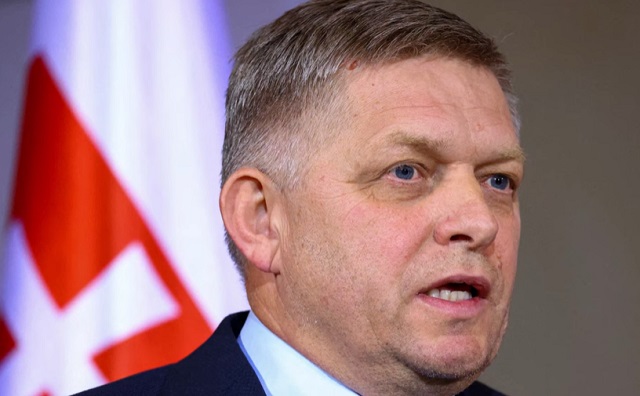
 Crime1 day ago
Crime1 day agoSlovakian prime minister who opposed WHO Pandemic Treaty shot in assassination attempt
-
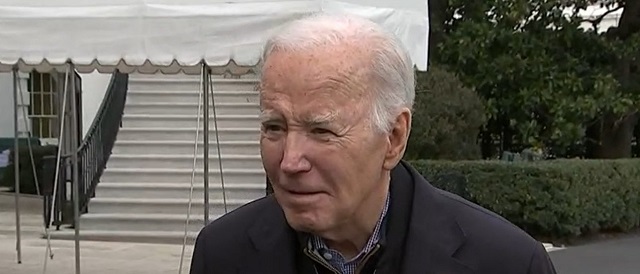
 Censorship Industrial Complex1 day ago
Censorship Industrial Complex1 day agoJim Jordan Exposes Biden’s Censorship-Industrial Complex
-

 Automotive2 days ago
Automotive2 days agoGovernments in Canada accelerate EV ‘investments’ as automakers reverse course


